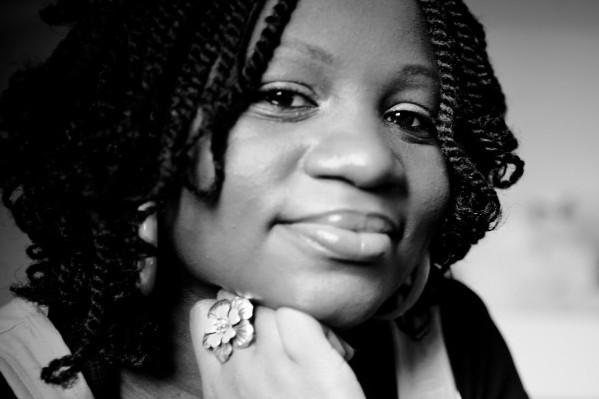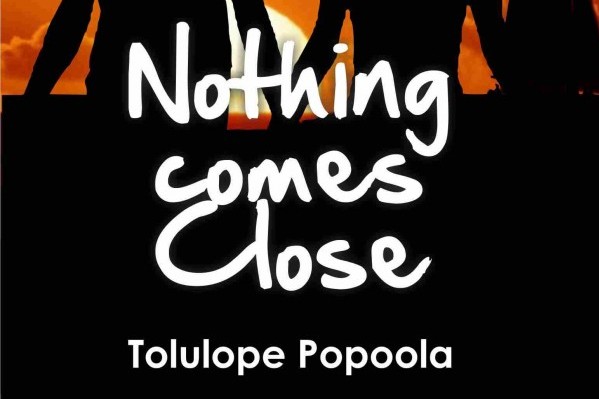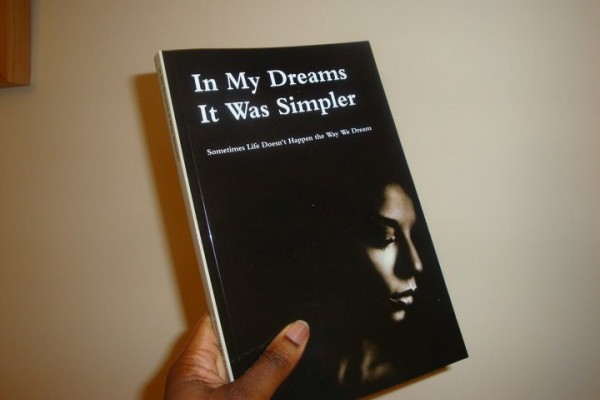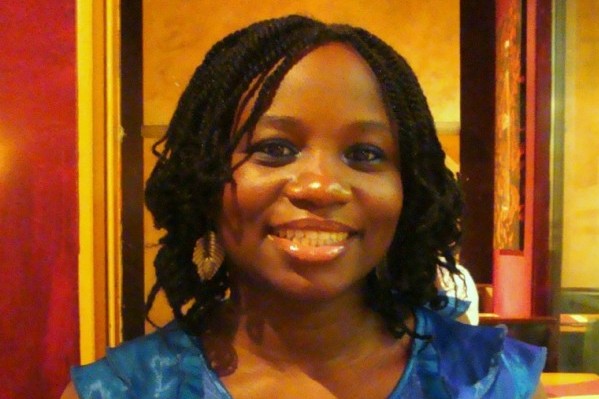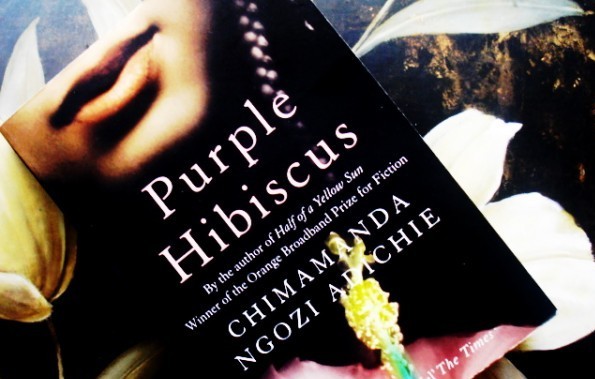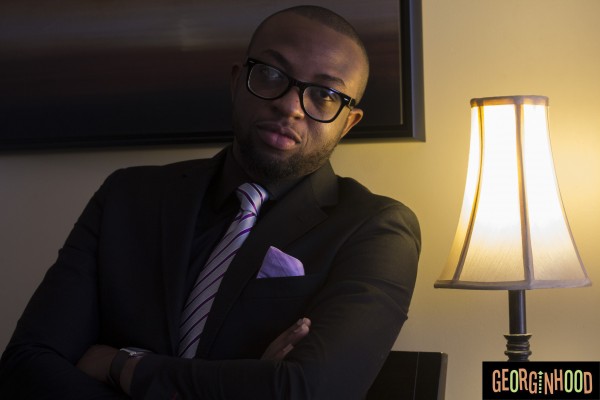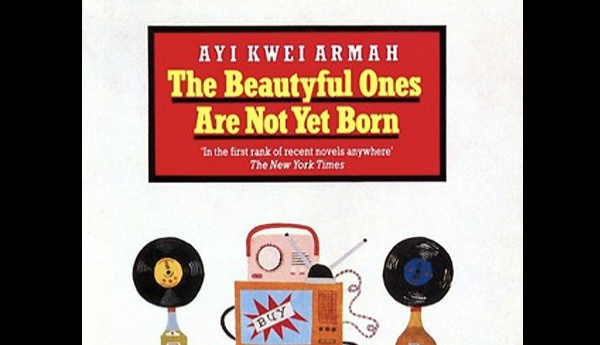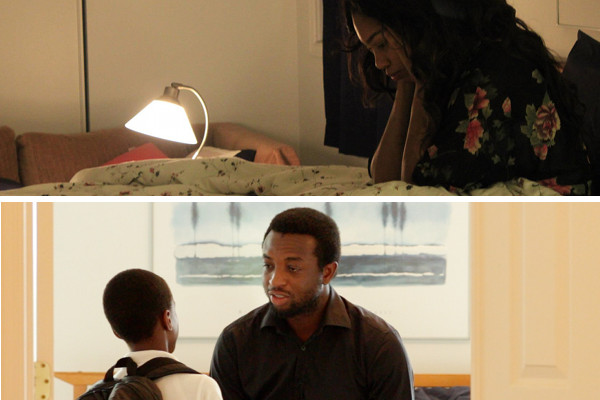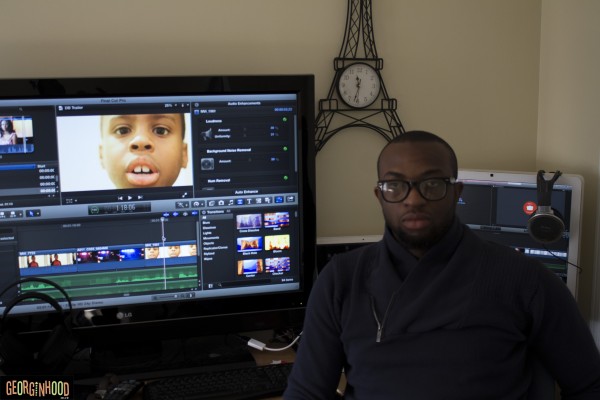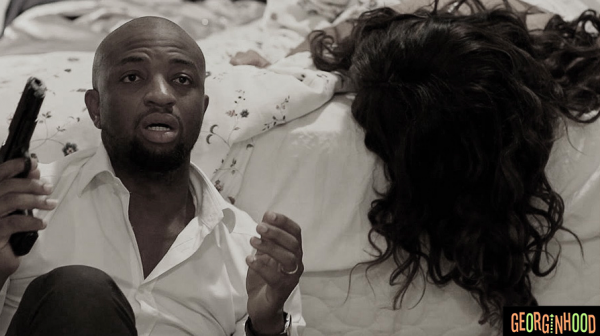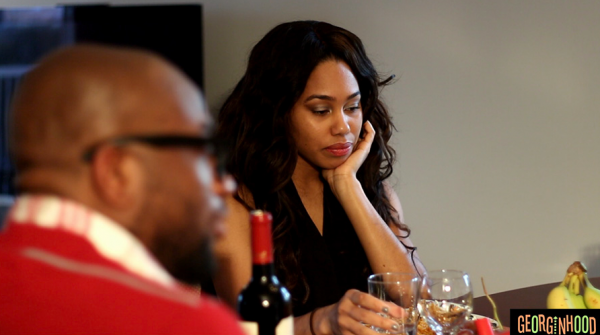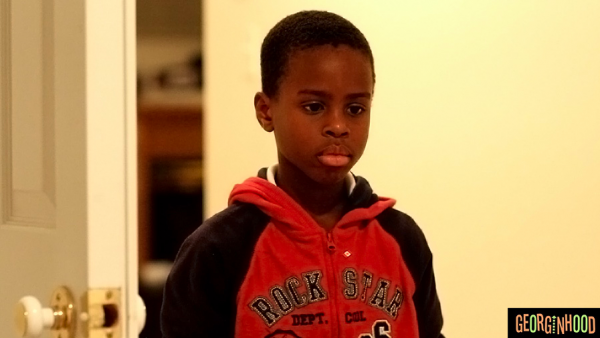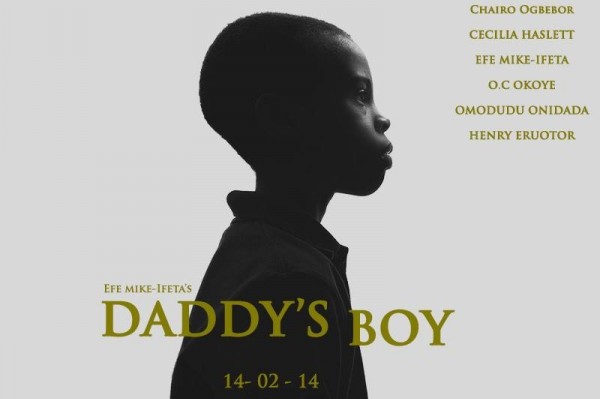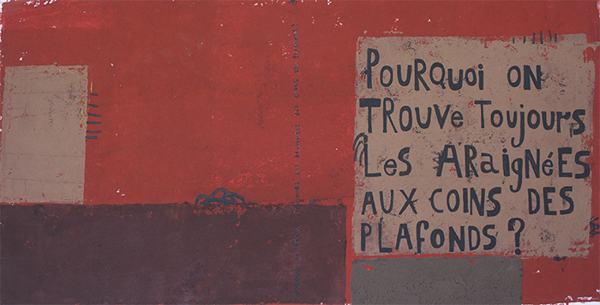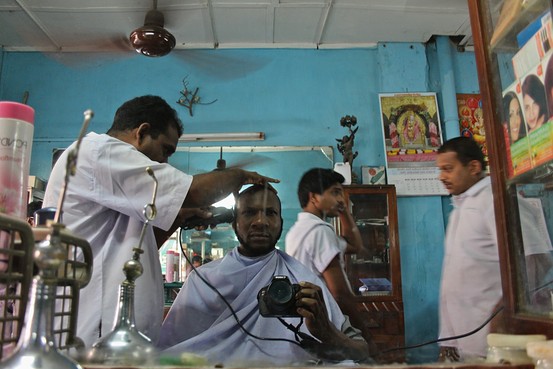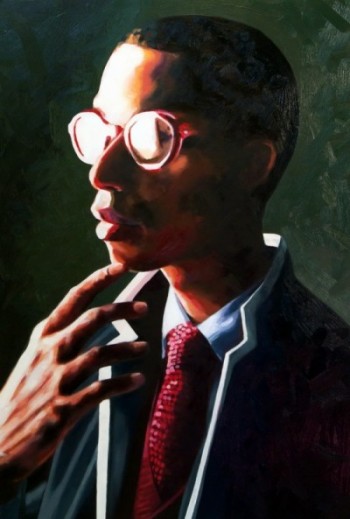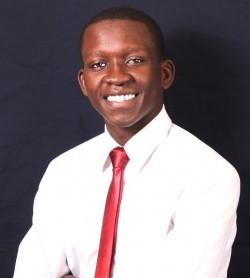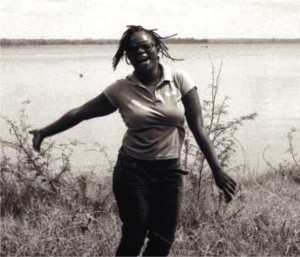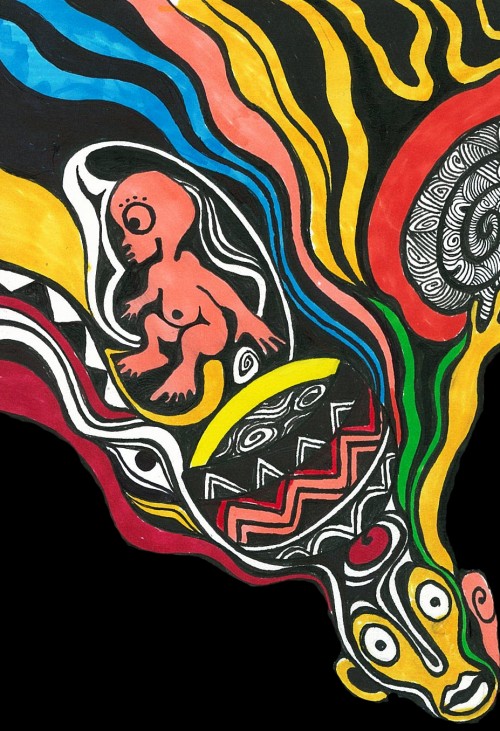
Teju Cole’s Everyday For the Thief started out as a blog called “Modal Minority.” Tolulope Popoola‘s novel Nothing Comes Close is a spin off from a blog series.
What do these success stories tell us about blogging and fiction writing? Should all aspiring writers try out blogging? If you already write a fiction blog, how do you make the move to your debut novel?
Popoola is on hand to answer these questions and more while taking us through the fascinating journey that got her living her dream as a fiction writer.
Enjoy!
May 6, 2007. Does that day ring a bell? It’s the day you made the first post on your blog “On Writing and Life.” 6 years later, you are a published novelist, would you say blogging has been well worth it? Why?
I actually started blogging under the pseudonym Favoured Girl in 2006, and I had two other blogs before I started the writing fiction one. I had a general journal blog, and another one called Journey Down the Aisle, where I talked about relationships and marriage. Blogging was a hobby that helped me rekindle my love for writing, it helped me find my voice, it helped me connect to an audience, and it gave me the support network of like-minded people, some of whom I’m still in touch with now. So I would say blogging has definitely been worth it.
In your first post, you mention that you quit your job as an accountant to become a writer, tell us more about that.
Yes, I left my career in Accounting sometime in 2008. I had enjoyed studying Accounting, Economics and such subjects at university because there was variety in the courses, the projects and assignments we were told to do. But, by the time I graduated and started working, all the fun was sucked out of it. I started hating the routine of doing the same thing over and over again. Every morning was a struggle to motivate myself to get up and get to work. I wasn’t fulfilled in my job, even though it paid well and the company was a great place to work. I knew I had creative talents that I wasn’t putting to good use and, the more I thought about it, the more I was filled with horror at the idea of working in accounting for the next forty years of my life.
One afternoon in late 2006, I met a lady who was an accountant and working on a major finance project for her company. Even though it was a Saturday, and we were visiting, she was glued to her laptop, working on some financial data. When I asked her about it, she started telling me about her job, talking about the project she was working on, describing every single detail. She sounded so excited, passionate and enthusiastic. She said, ‘I love accounting, I love finance and I love working on exciting projects.’ In my mind, I was thinking, ‘Wow! She actually loves her job!’
It was eye-opening, because I hadn’t imagined that there were people who really loved what they did for a living. After that meeting, it became clear to me that I didn’t have the same passion for accounting. It was just a profession I trained for and a job to keep some money coming in – nothing more. And, if I was to leave the job, I wouldn’t miss it one bit. So, the question for me was: what job could I do, that would make me passionate and excited about getting up in the morning?
I started thinking about what I would enjoy doing. I’ve always enjoyed reading, writing and keeping a journal. Blogging had rekindled my interest in writing stories. But it took a while for me to realise that I could actually make a career out of it. When I started receiving feedback from people who had read some of my short stories, I realized I really enjoyed writing, and I wanted to continue doing it for the rest of my life. It was rediscovering who I really was. I’ve had to make financial sacrifices and let go of a regular income but I’m happy to be doing something I really enjoy.
Why start as a blogger? What drew you to blogging?
In 2006, I came across a few Nigerian blogs when I was searching for some information online. I read one blog, clicked on another, and another, and I found that there was a wonderful community of Nigerians online. It looked interesting and I wanted to be part of it. I was also attracted to the idea of writing an online journal, so I started my own blog. I enjoyed the writing, commenting, meeting some like-minded people and even some strange people online. Before long, I started looking forward to coming home after a long day at work and unwinding by writing on my blog.
What are some things that you find memorable about the Nigerian blogging scene of the mid-to-late 2000s?
The camaraderie and community feel among bloggers was wonderful. It felt like we all knew each other even though most of us were blogging anonymously at the time. There were so many bloggers I felt like I knew in real life. Some people’s lives and experiences seemed to mirror mine, and then there were bloggers whose lives were so different from mine. But we all got along well and supported each other in our little blogging world. It was a very interesting time.
Your debut novel, Nothing Comes Close, started out as part of a collaborative blog project titled “In My Dreams It Was Simpler.” Tell us about the project.
The project started as a short story. I came across a wedding album on Facebook one day and I thought the groom looked like a cousin of mine who was already married to someone else. This gave me an idea and a few days later, I wrote a short story titled My Dilemma. I put it on one of my blogs and as a note on Facebook. I got interesting feedback from people who read it, and lots of people asked for a Part 2 to the story. I didn’t consider it until someone left a comment saying that the story could be turned into a series. That caught my attention and it sounded like a neat idea, so I decided to expand the plot and the characters. Then I invited some bloggers and asked if they were interested in writing a group story. Thankfully I got a great response and a few weeks later, the series was born.
What are three things you learned about yourself as a writer during the “In My Dreams” years?
I learnt how to plot and outline my ideas before weaving them into a story, I learnt how to schedule my work and write for an audience, and I learnt that collaboration can help create something better than what I could have done on my own.
Is it weird coming of age as a writer in a blogosphere? By that I mean, what was it like having to grow and make mistakes in front of an audience?
I don’t find it weird at all, maybe because it’s all I’ve known since I started writing. Blogging made it easy for me to get feedback from readers quickly, and also judge the type of stories that my audience responded best to. I met people online who were very generous with their time and comments, so the mistakes I made were pointed out to me and I could work on them quickly. I think it helped that I was open to receiving criticism so I didn’t mind being literally exposed.
At what point did it occur to you that Wole and Lola’s story could be a novel?
As the storylines in the series were developing, Lola and Wole were getting closer and their relationship was deepening. Unfortunately, the series came to an end before our readers got to see if they overcame the new challenges that were thrown at them. I felt the story had potential so I had the idea to take their story out of the series, and continue writing it separately.
What was most challenging about moving Wole and Lola’s story from blog series to novel?
A blog is a whole different format to a book. You can write a blog post in two hours, publish it and move on from it onto a new idea. A book forces you to string together a whole bunch of different plots, characters and ideas into a continuous cohesive story. A book also needs several drafts and rewrites. So when the series ended, I had to rework all the blog posts, fill in some missing bits and weave in some new information that the series didn’t have. I had to cut down on the number of characters, because we had so many in the series that were not directly relevant to Lola and Wole’s story. I also couldn’t use characters and storylines that were created by the other writers.
You’re officially the flash fiction queen. I don’t know how you do it, but your flash fiction pieces always seem so together, complete and packed full of drama. It isn’t rushed and doesn’t read like some parts are missing. What excites you about flash fiction? How did your love affair with flash fiction begin?
I don’t know about being queen of flash fiction (laughs).Writing flash fiction began as an experiment. I was attending a class for writing short stories, and I started writing shorter and shorter stories for my assignments. One day I challenged myself to write a story less than 100 words. The motive was just to give the reader a five-minute glimpse into somebody’s life. I published it on my blog and got nice feedback from my readers, so I was encouraged to keep writing such short pieces. Then in 2011, I was approached by the editor of Radical Chic Magazine to write flash fiction for them on a weekly basis so that gave me a chance practice more and hone my skills. I like the unpredictability of flash fiction; giving the reader a twist they usually don’t see coming.
Can you envision your writing career so far without seeing blogging in the mix? Did blogging have anything to do with the fact that you stuck it through and remained in the writing game? Feel free to comment on social media, more broadly, and what role, if any, it plays in encouraging a writing culture. Would you have become a writer in a world without social media?
I really think blogging has made a big difference to my career. Having an online presence is a big part of being an independent writer and publisher. I definitely agree that blogging has kept me going as a writer. When we were working on the series, I kept going because I knew that every week; our readers were expecting a new instalment. Blogging made me get into the habit of writing often and practicing my skills. If I haven’t updated my blogs in a while, I start to feel guilty and that prompts me to create some more content. My blogs and social media pages have also been an excellent way of connecting with readers, getting their feedback, and promoting my work.
Social media is a blessing to this generation of writers. Being a full-time writer can be isolating but, thanks to blogs and social media, I have made many friends, and we support each other in our work. I’ve met many people – bloggers, journalists, aspiring authors, published authors, editors and so on – that have been a tremendous supportive network. I’ve collaborated with people on different writing projects, received free books, been interviewed, had my stories published in magazines, received excellent feedback and so on, all via people that I’ve met online. I think social media can definitely encourage a writing culture, but at the same time, it can be a huge distraction. It is possible to spend so much time tweeting and reading blogs, that one has no time to write! So I would say, it’s like any other tool, it depends on how you use it.
Social media has also been beneficial to me as a reader. Most authors now have blogs and websites too. When I finish reading a book that I’ve really enjoyed, I can now go online to find out more about the author. I want to know what inspired the story and the writer’s journey. Websites like Goodreads are social networks that recommend books to users, based on their preferences. Thanks to them, I have a never ending “to-read” pile of books.
Should every aspiring writer try out blogging?
I believe every aspiring writer should have a blog, for many reasons. Your blog is your personal space on the web where you can publish your own content. Whatever you write, whether it’s poetry, short stories, excerpts from your work-in-progress, non-fiction articles or other things that interest you. Blogging gets you into the writing habit, and it gives you an opportunity to meet and interact with readers and other writers. Whenever you post things on social media, a blog is where you can direct people to, if they want to find out more about you and your work. You can also do guest blogging, where you post on other popular blogs to get more exposure for your work.
In addition to being a novelist, you are a literary entrepreneur of sorts. You have a publishing service outfit. How did that come about?
Yes, I’m also a publisher and consultant. I founded Accomplish Press at the end of 2011 because it became a necessary aspect of what I wanted to achieve. From my experience as a Nigerian writer in the UK, I realised there were not many mainstream publishers willing to take a chance on new writers like me. I had met publishers who found my work interesting, but they always said that it wasn’t commercially viable because it was regarded as ‘ethnic fiction’. However, I believe that I have stories to tell and there are readers who want to read about people like them in books. So, I decided to take the chance and become a publisher myself. This way I can reach my audience directly, publish the kind of stories that I like and I feel there is a market for. I can also create an avenue for other writers like me to get their work published. It took a lot of time, effort, research and sleepless nights to set things up, but I really wanted to be proactive about my work, instead of waiting endlessly for another publisher to notice me.
There are so many abandoned blogs out there. From your experience with an extended projected like “In My Dreams,” what remedies do you have for that well-known illness called bloggers apathy?
To stave off apathy, keep your end goal in mind. What’s your reason for blogging? That’s what will keep you motivated. It is also helpful to commit to a specific schedule and style of content. Decide how often you post to your blog (maybe once or twice a week), how long your posts are, and how consistent you want to be. Once your readers come to expect something from you regularly, you’ll have to try and meet their expectations. Even the series was not immune to such problems though. I would have loved it to continue for a bit longer, but some of the other writers had more commitments, so it had to come to an end.
What are three things to consider when blogger thinks its time to transition to the next big thing—in your case it was blog series to novel?
I think it will be different for everyone, because not all bloggers have the same goals. The most important thing is to be sure you can commit to seeing your project through to the end. For me, I really wanted to make something permanent out of the blog series so that the whole story wasn’t lost. I imagined that one day the blog would fade into obscurity, but a book would always exist, either in print or digital format. I also felt like I had tried my hands at different forms of writing, but I still hadn’t written a novel. So that was the next item on my to-do list.
Buy Popoola’s delightful novel {HERE}
Follow Popoola on Twitter @TolulopePopoola
